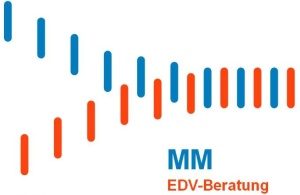How
can we help?
Industrial engineering is a branch of engineering which deals with the optimization of complex processes, systems, or organizations. Industrial engineers work to eliminate waste of time, money, materials, person-hours, machine time, energy and other resources that do not generate value. According to the Institute of Industrial and Systems Engineers, they create engineering processes and systems that improve quality and productivity.
Industrial engineering is concerned with the development, improvement, and implementation of integrated systems of people, money, knowledge, information, equipment, energy, materials, analysis and synthesis, as well as the mathematical, physical and social sciences together with the principles and methods of engineering design to specify, predict, and evaluate the results to be obtained from such systems or processes. While industrial engineering is a longstanding engineering discipline subject to (and eligible for) professional engineering licensure in most jurisdictions, its underlying concepts overlap considerably with certain business-oriented disciplines such as operations management.
Depending on the sub-specialties involved, industrial engineering may also be known as, or overlap with, operations research, systems engineering, manufacturing engineering, production engineering, management science, management engineering, ergonomics or human factors engineering, safety engineering, or others, depending on the viewpoint or motives of the user.
Stats & Charts
Modern industrial engineers typically use predetermined motion time system, computer simulation, along with extensive mathematical tools for modeling, such as mathematical optimization and queueing theory, and computational methods for system analysis, evaluation, and optimization.
Industrial engineers also use the tools of data science and machine learning in their work owing to the strong relatedness of these disciplines with the field and the similar technical background required of industrial engineers.
[easy_chart chart_id=‘12726’]
Our
solutions
Industriel is a pioneer in design-build specializing in architecture and construction services.
Industriel has a brilliant record in responding to complex customer requirements.
We work to reduce air emissions associated with our operations and the products we deliver.
Industry
benefits
Electronic materials are the type of materials which are typically used as core elements in a variety of device applications. These elements can be, for example, memories, displays, LEDs and could be easily seen in daily electronic gadgets such as mobile phones, computers, laptops, tablets, GPS devices, LED bulbs, TVs and monitors.
Electrical power has been the technological foundation of industrial societies for many years. Although the systems designed to provide and apply electrical energy have reached a high degree of maturity, unforeseen problems are constantly encountered, necessitating the design of more efficient and reliable systems based on novel technologies.
The automotive aftermarket is the secondary market of the automotive industry, concerned with … Replacement parts are automotive parts built or remanufactured to replace OE parts as they become worn or damaged.

